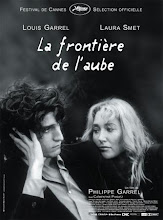"How to Procrastinate Like Leonardo da Vinci
But Leonardo rarely completed any of the great projects that he sketched in his notebooks. His groundbreaking research in human anatomy resulted in no publications — at least not in his lifetime. Not only did Leonardo fail to realize his potential as an engineer and a scientist, but he also spent his career hounded by creditors to whom he owed paintings and sculptures for which he had accepted payment but — for some reason — could not deliver, even when his deadline was extended by years. His surviving paintings amount to no more than 20, and five or six, including the "Mona Lisa," were still in his possession when he died. Apparently, he was still tinkering with them.
Nowadays, Leonardo might have been hired by a top research university, but it seems likely that he would have been denied tenure. He had lots of notes but relatively little to put in his portfolio.
Leonardo was the kind of person we have come to call a "genius." But he had trouble focusing for long periods on a single project. After he solved its conceptual problems, Leonardo lost interest until someone forced his hand. Even then, Leonardo often became a perfectionist about details that no one else could see, and the job just didn't get done....Leonardo worked on what interested him at the moment, cultivating his energies and insights, even when those activities were not directly related to his current commissions....
Nowadays, Leonardo might have been hired by a top research university, but it seems likely that he would have been denied tenure. He had lots of notes but relatively little to put in his portfolio.
Leonardo was the kind of person we have come to call a "genius." But he had trouble focusing for long periods on a single project. After he solved its conceptual problems, Leonardo lost interest until someone forced his hand. Even then, Leonardo often became a perfectionist about details that no one else could see, and the job just didn't get done....Leonardo worked on what interested him at the moment, cultivating his energies and insights, even when those activities were not directly related to his current commissions....
Through his many episodes of alleged procrastination, we see an artist who engages with the irresolvable conflict between unlimited aspiration and the acknowledgment of human limitation....
Leonardo's known writings would fill at least 20 volumes, but if one includes the lost materials, he probably wrote enough to fill a hundred....
Several compendiums have been compiled from his notebooks, but, like so many of us, Leonardo never used his voluminous private writings to produce a single published work....
His work in optics might have delayed a project, but his final achievements in painting depended on the experiments — physical and intellectual — that he documented in the notebooks. Far from being a distraction — like many of his contemporaries thought — they represent a lifetime of productive brainstorming, a private working out of the ideas on which his more public work depended. To criticize this work is to believe that what we call genius somehow emerges from the mind fully formed — like Athena from the head of Zeus — without considerable advance preparation. Vasari's quotation of Pope Leo X has rung down through the centuries as a classic indictment of Leonardo's procrastinatory behavior: "Alas! This man will do nothing at all, since he is thinking of the end before he has made a beginning."...
Leonardo is just one example of an individual whose meaning has been constructed, in part, to combat the vice of procrastination; namely, the natural desire to pursue what one finds most interesting and enjoyable rather than what one finds boring and repellent, simply because one's life must be at the service of some compelling interest — some established institutional practice — that is never clearly explained, lest it be challenged and rejected.
Academe is full of potential geniuses who have never done a single thing they wanted to do because there were too many things that needed to be done first: the research projects, conference papers, books and articles — not one of them freely chosen: merely means to some practical end, a career rather than a calling. And so we complete research projects that no longer interest us and write books that no one will read; or we teach with indifference, dutifully boring our students, marking our time until retirement, and slowly forgetting why we entered the profession: because something excited us so much that we subordinated every other obligation to follow it.
If there is one conclusion to be drawn from the life of Leonardo, it is that procrastination reveals the things at which we are most gifted — the things we truly want to do. Procrastination is a calling away from something that we do against our desires toward something that we do for pleasure, in that joyful state of self-forgetful inspiration that we call genius."
Academe is full of potential geniuses who have never done a single thing they wanted to do because there were too many things that needed to be done first: the research projects, conference papers, books and articles — not one of them freely chosen: merely means to some practical end, a career rather than a calling. And so we complete research projects that no longer interest us and write books that no one will read; or we teach with indifference, dutifully boring our students, marking our time until retirement, and slowly forgetting why we entered the profession: because something excited us so much that we subordinated every other obligation to follow it.
If there is one conclusion to be drawn from the life of Leonardo, it is that procrastination reveals the things at which we are most gifted — the things we truly want to do. Procrastination is a calling away from something that we do against our desires toward something that we do for pleasure, in that joyful state of self-forgetful inspiration that we call genius."
Aqui.




1 comentário:
Como eu te percebo... a ti e ao Leonardo...e ao Eça de Queiroz, que tanto contribuiu para a evangelização do Diletantismo. Somos uns sacanas duns diletantistas camarada, basta ver o que acontece sempre que temos que escrever um novo artigo para "O Jornal de Monchique"...
Não te esqueças que temos que escrever o próximo até segunda-feira, dia 23 de Março. Sendo assim, cuidado com essas rotinas diletantes...
Enviar um comentário